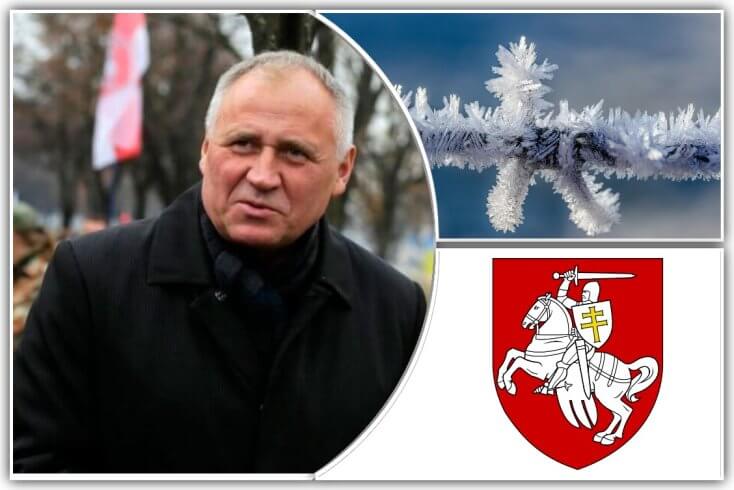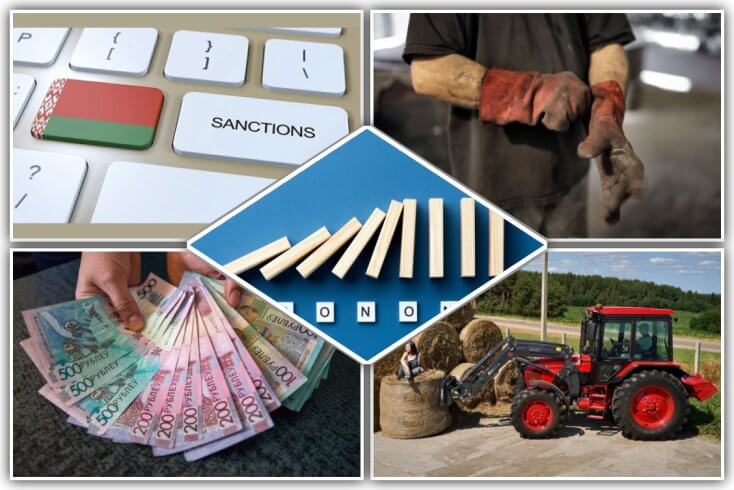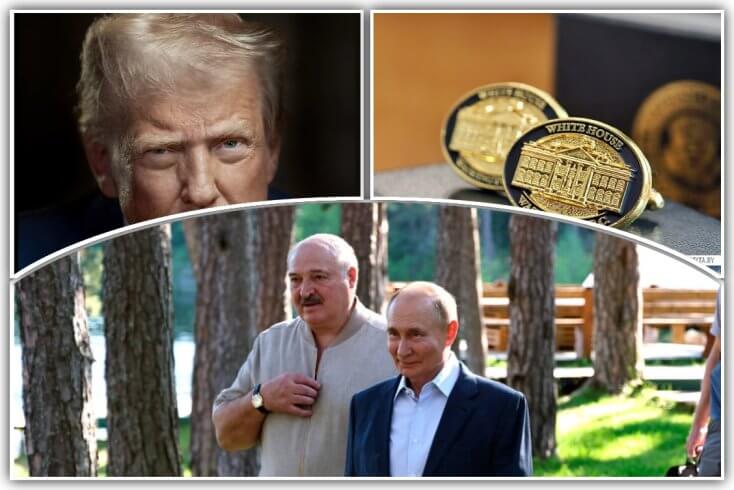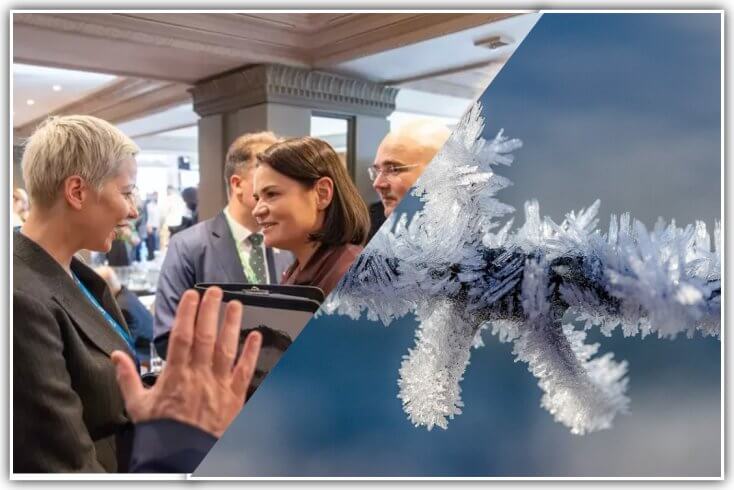The government and opposition have limited influence on each other. Pro-democracy forces are unlikely to come up with a brilliant strategy, but the system is unlikely to last either.

On March 12, a Serbian court overturned the extradition of filmmaker Andrej Hniot to Belarus. That was a small victory for the office of Śviatłana Cichanoŭskaja and a defeat for the government, which intended to stage another show trial.
On February 25, the Belarusian government de facto appointed a new parliament. The special operation, disguised as an election, was carried out exactly according to Alaksandar Łukašenka’s plan. That was his victory – and a defeat for the opposition, which tried but failed to offer an alternative.
The hearing took place in Europe, where Belarusian opposition politicians dominate over Minsk. The vote took place in Belarus, where the omnipotence of the ruling administration is evident.
Three and a half years after the 2020 elections, the Belarusian government and its opponents have confidently occupied their niches. There are few overlapping areas, but they do exist.
Opposition strategy: diplomacy, human rights, sanctions and diaspora
Filmmaker Hniot was not the first activist arrested abroad. Belarusians were arrested in Armenia, Italy and even Poland at Minsk’s requests. Opposition leaders managed to defend them all.
These efforts are part of a broader human rights agenda promoted not so much by Cichanoŭskaja and Pavieł Łatuška, but by solidarity groups, the Viasna Human Rights Center and other initiatives.
The opposition has achieved fantastic results in raising funds for oppressed Belarusians, supporting the families of political prisoners and bringing up humanitarian issues.
It has been hugely successful in diplomacy, no matter how much the haters mock it as political tourists.
Years after 2020, Cichanoŭskaja’s team remains a major player in international politics, participates in prestigious forums and gets high-level reception in Western capitals.
Maintaining international interest in Belarus is important and forward-looking.

Officials’ anger proves the importance of diplomacy. The Belarusian government was outraged by Cichanoŭskaja’s trip to Bulgaria earlier this month and had even recalled ambassadors from some countries, where opponents had the upper hand.
Lobbying for sanctions is another priority of the opposition, and Łatuška’s team is working vigorously in the field.
Although polls show that many in Belarus do not support sanctions, and it is widely believed that Western politicians are the ones who decide on restrictive measures, pro-democracy forces also seem to play an important role in the decision-making process.
Otherwise, the new sanctions packages would not have been timed to coincide with the anniversaries of the 2020 election, and there would be no talk of an International Criminal Court arrest warrant for Łukašenka.
Helping Belarusians legalize themselves abroad is also a focus area for the opposition.
The flow of emigrants is still high and this work remains relevant.
Although the draft new Belarus passport has fallen out of spotlight, in almost every speech before an influential audience Cichanoŭskaja calls for making a distinction between Belarusians and the regime.
Besides, the opposition has forged some ties with Kyiv, and Belarusian volunteers are fighting for Ukraine, campaigning for the support of certain social groups and implementing other local projects.
Obviously, the opposition carries out very few activities in Belarus, which is why some expats criticize Cichanoŭskaja. They call for a clear “strategy to overthrow Lukashenka,” but are usually at a loss for words when asked how this should be done.
Politics is the art of the possible, and emotion and populism often prevail in demands for the impossible.
Government strategy: reprisals, Russia, militarization, ideology
The Belarusian government’s strategy is simple: keep Łukašenka at the helm.
That is why reprisals continue. New arrests, trials and sentences are reported daily. Disloyal employees are fired from companies and public institutions without any regard for the consequences. The third sector has been purged, the opposition parties outlawed, independent media silenced or driven abroad. A like in social media can easily land opponents in jail.
Russia still serves as a stone wall behind which Minsk can hide comfortably. The regime relies on the Kremlin not only politically, but also economically. Its aid mitigates the impact of sanctions and the loss of Western markets. Moscow’s protection facilitates communication with the Global East and Global South, enabling officials to break through international isolation.
The endless drills of regular and paramilitary units show that Łukašenka fears an armed uprising or incursions by armed opposition fighters from Ukraine.
The war gives rise to fears and conspiracy theories; and in response, the government involves more and more personnel in military drills and authorizes more officials to carry and use weapons.
On the ideological front, it promotes so-called “state patriotism.” Shocked by 2020 postelection protests, the government is busy teaching people to know their place in the state hierarchy, be obedient to any authority, have a pro-Russian or rather pro-Soviet worldview with patriarchal family values and mentality of a subject, not a citizen.
The opposition can hardly resist this campaign from abroad. Naming and shaming officials for the militarization of teenagers or police raids is a symbolic move that only proves that the big boss can do whatever he wants on the territory he controls.
Battle for minds, media, demonization of opponents
Despite the mass emigration, there are still many supporters of democracy in Belarus. Both the Łukašenka regime and the pro-democratic forces are aware of it.
This is one of the areas where the largely parallel coexistence of the opposing sides overlaps as both fight for minds.
The government bankrolls propaganda and continues to cleanse the information field of the independent media. Propaganda glorifies the incumbent and demonizes any alternative, brainwashing students and workers.
The opposition is doing its best to preserve the independent media, emphasizing their importance at all forums. Independent journalism has proved its capacity to survive. Despite all the risks for consumers, its content remains in high demand in Belarus.
Other political struggles are also mostly conducted in a non-contact public space. Very often they reflect the desire to defame and demoralize the opponent, show their weaknesses, worthlessness and futility.
The regime traditionally resorts to violence, vandalizing the homes of opposition leaders, disrupting attempts to deliver aid to the families of political prisoners and releasing videos of forced confessions.
The security services show off their power by hacking into harmless online streams, recruiting opposition activists as informers and producing numerous films to compromise exiled politicians.
The propaganda effect of such actions is unclear, but one thing is for sure: with state channels at its disposal, the Committee for State Security (KGB) spends considerable resources on the media, and its employee Kanstancin Byčak has already become a TV star.
In the opposition, the BelPol association of former law enforcers, the hacktivist IT group Cyberpartisans, and other activists with access to information are working to counter government propaganda.
The groups help independent media with high-profile investigations. The BySol Foundation conducts successful fundraisers and evacuates dissidents from Belarus, while Cyberpartisans have recently hacked the website of the government-controlled news agency BelTA.
During the February elections, BelPol hacked public displays in Belarus to broadcast Cichanoŭskaja’s appeal to voters. In a senselessly brutal response, law enforcers arrested employees of the company that maintains the displays.
Some may say that the opposition is not doing enough to fight dictatorship. Indeed, Łukašenka cannot be removed from office by hacked advertising screens or with the help of an anti-corruption investigation. In isolated coexistence, the pro-democratic movement simply has no other tools of influence.
Keeping shape for a “black swan” event
Those who criticize the opposition find it hard to accept that under the circumstances it can hardly come up with a brilliant strategy to force Łukašenka’s capitulation.
The sanctions have had little impact because Minsk receives aid from Moscow. It is impossible to sue the regime because Minsk defiantly ignores international treaties that it ratified.
It is useless to appeal to morality, because the regime has none. It is useless to threaten with a violent protest because it is unrealistic.
Status quo cannot last forever
Łukašenka is getting older and often refers to himself as the “outgoing president.”
The war in Ukraine continues, and its outcome is unpredictable.
Some experts are skeptical about Russia’s economic resilience, noting its GDP is propelled by high military output.
Fearing for the future, the regime is digging in deeper and deeper. Hoping for the future, the opposition carries on its activity.
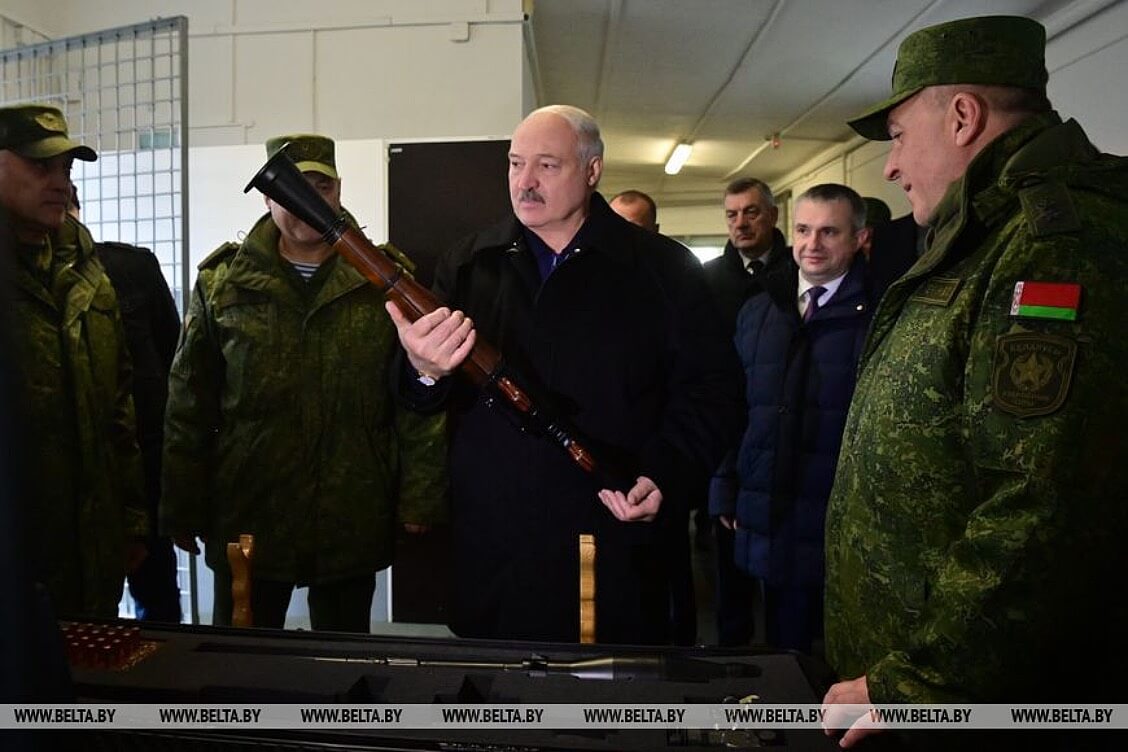
In essence, the task of the pro-democracy forces is to keep themselves in good political shape so that a black swan event in Belarus does not take them by surprise.
It is important for Cichanoŭskaja to reaffirm her claim to legitimacy after Łukašenka’s likely re-election in 2025, continue her diplomacy and work toward tighter sanctions.
In other words, the opposition should continue domination at its political playing field, mindful that access must eventually open to Łukašenka’s territory.
